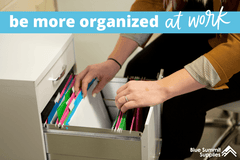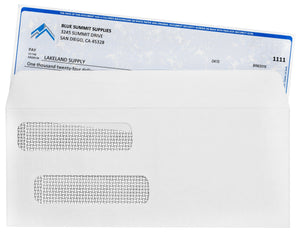What is an EAP, and what is EAP counseling? EAP stands for Employee Assistance Program, and it covers a range of free services for employees aimed at improving their wellness, wellbeing, mental health, and more. The services offered by an EAP vary from company to company and depend on the size of the organization as well as the needs of the employees.
In this article, we’ll explain what an EAP is, what an EAP counselor does, and how someone becomes an EAP. We’ll also answer key frequently asked questions about the benefits of having an EAP program, employee assistance program costs, and how to find EAP providers.
What’s an Employee Assistance Program? (EAP)
What’s an EAP?
Employee assistance programs offer resources and services to help employees with a wide variety of personal challenges that might be adversely affecting their work performance. Originally, EAPs assisted employees with substance abuse, but over the decades, they have expanded to cover many issues, such as child and elder care, financial and legal problems, mental health, and overall wellbeing.
How Do EAPs Work?
Employee assistance plans may be offered by both public and private organizations at little or no cost to their employees. Services are often available to an employee’s family members as well and are sometimes known as employee and family assistance programs.
Organizations may contract with outside employee assistance program providers or employ providers directly to provide in-house services. Like many post-pandemic services, they are often delivered via video-based counseling, online chatting, email interactions, or over the telephone. Services can also be offered face-to-face, particularly for in-house options, which may include things like a fitness center, daycare, cafeteria, or even an on-site therapist.

What is EAP Counseling? What Do They Do?
An EAP counselor has usually met state licensing requirements in order to become a professional therapist, counselor, or social worker. These requirements often include a master’s degree and clinical experience in fields such as counseling, social work, marriage and family therapy, or psychology.
An EAP counselor typically provides short-term support to help employees deal with major life events like grief or loss, substance abuse, workplace conflicts, relationship problems, or anxiety and depression. This support often includes helping employees to reflect on their challenges and develop coping strategies to resolve their issues to improve their overall wellness and performance in the workplace.
Sessions with a counselor typically consist of 30 minutes to one hour of one-on-one, in-person conversation about whatever topic the employee wishes. However, in the post-pandemic world, counseling is expanding to include video and telephone session options, and in some cases, even chat or email support.
Like all forms of counseling, EAP counseling is completely confidential. There are only certain types of information they can share with an employer without the employee's consent, such as verifying the employee's attendance.
EAP counseling is generally short-term, often consisting of only three to six sessions, but this depends on what your employee assistance plan offers. An EAP counselor can refer you to a psychologist, psychiatrist, or therapist for longer-term support. An employee may be able to continue seeing the same counselor long-term if they are covered by their insurance or if the employer is willing to extend the number of sessions offered.

How to Become an EAP Counselor and Acquire EAP Training
Becoming an EAP counselor requires different types of training, depending on the location and/or the company the counselor works for. However, there are a few milestones on most pathways. These include earning a master's or doctoral degree in a relevant field, such as professional counseling, social work, marriage and family therapy, addiction counseling, or psychology. These programs include training in skills such as communication, ethics, emotional regulation, research, and more.
EAP counselors in the US need to become licensed or certified by the state they live in to practice EAP counseling. Depending on their specialty, they may become a licensed mental health counselor (LMHC), a licensed marriage and family therapist (LMFT), a licensed master of social work (LMSW), or a licensed clinical social worker (LCSW). These licenses may require a minimum number of clinical hours or a standardized exam.
Following licensure, those aiming to become EAP counselors may also seek specific EAP training and certifications, such as the Certified Employee Assistance Professional (CEAP) credential, which is available through the Employee Assistance Professionals Association (EAPA).
EAP Program FAQs

What Can EAP Help With? What Are the Benefits to Employees?
Over the years, EAPs have grown to offer a wider range of services beyond assistance with workplace stress. Some plans have evolved into holistic plans focused on general wellbeing, which may include:
- Professional development, such as career coaching, assistance with career transitions, and promotions.
- Wellness services, such as access to a nutritionist, gym, or on-site food service.
- Social or professional relationship skills, such as conflict resolution, networking, family issues, and relationship building.
- Family situations, such as divorce, adoption assistance, child and elder care, parenting classes, assistance with finding preschools, and planning for college.
- Legal services, such as access to a fraud prevention specialist for victims of identity theft.
- Financial planning, such as buying a home, tax planning, and debt counseling.
-
Mental health services, such as recovery from substance abuse, grief after the loss of a loved one, and access to support groups.

What Are the Benefits to Employers?
Many employers invest in an EAP to improve their employees’ wellbeing, which, in turn, results in improved job performance of their employees, success of their organization, and an overall return on their investment. When employees are happy, the employer is likely to retain them long-term, which reduces the costs of hiring, onboarding, and training.
The benefits of an EAP include improved productivity, company culture, employee satisfaction and engagement, and long-term retention of employees. EAPs also reduce employee burnout, lost productive time, as well as absenteeism and presenteeism (when an employee is present but not productive).
The 2021 Workplace Outcome Suite (WOS) Annual Report measured multiple improvements in work functions from using EAP services. The study estimated that, for a typical US employer in 2019, the return on investment for EAP services was $4.29 for every $1. This increased to $5.04 per $1 in 2020, likely due to increased use rates during the pandemic year.
The cost of EAPs is considered to be relatively low compared to other employee benefits. Even when EAP services are used by a low number of employees, they may result in savings that more than cover the cost of an EAP.

What’s the Average Cost of Employee Assistance Programs?
The employee assistance program cost to employers varies depending on the organization’s size, the provider, and the type of services the employer wants to provide. Generally, the larger the organization and the more employees it has, the less the cost is per employee. EAPs with in-house services are able to provide more direct services, but they tend to cost more.
Due to a wide range of factors, the cost of EAPs to the employer can appear quite different. Some estimates can be as low as 75 cents per employee per month, and on the high-end, $2 per employee per month. Another estimate from The Employee Assistance Society of North America reports a cost between $12 to $40 per employee per year.
Higher utilization of EAP services by employees indirectly lowers the cost of the EAP through return on investment. Employers save money when EAPs improve the productivity of employees, lower absenteeism and presenteeism, and help to retain employees for longer.
Utilization rates of EAP services tend to vary, which may also affect the return on investment and overall cost. For example, organizations with higher numbers of female employees tend to have higher utilization rates. Smaller organizations also have higher utilization rates, likely due to better communication.

How Do You Find EAP Providers?
Employers searching for EAP providers will find helpful resources at the International Employee Assistance Professionals Association. They offer a directory of Certified Employee Assistance Providers and provide an EAP buyers guide, as well as many other resources and publications.
A majority of large companies in the US offer some type of employee assistance plan. Employees seeking info about their EAP should ask their human resources department, search their organization’s policies and resources, or reach out to a manager during a one-on-one meeting.

Are There Disadvantages to EAPs?
There aren’t many disadvantages to a well-organized EAP program. There is, however, sometimes a stigma attached to using EAP services, which may result in lower utilization by employees. For example, an employee might not want their employer to know they are seeing a counselor, especially if that counselor is on the employer’s property.
A federal privacy law, the Health Insurance Portability and Accountability Act, protects the right to privacy of healthcare information. This means that only certain information shared by an employee with a counselor can be shared with the employer without consent.
More From Blue Summit Supplies
🎧 Standard Office Procedures: Ep. - #5 Health and Wellness at the Workplace
📚 Circle of Control: Combating a Lack of Control at Work
📚 Psychological Safety in the Workplace: What It Is and How to Achieve It
We’re passionate about helping businesses build strong, healthy workforces. Follow our office supplies blog for the latest trends, strategies, product comparisons, and more, as well as our Standard Office Procedures Podcast, in which guests offer their insight and advice on how we can all be happier and healthier in this busy, modern workforce.
If you have any questions or want to talk to someone about office supplies, leave a comment below, send us an email, or connect with us on Twitter, Facebook, or Instagram.
 For more informative articles about office supplies, subscribe to our email newsletter!
For more informative articles about office supplies, subscribe to our email newsletter!
Never fear, you won't begin receiving daily sales emails that belong in a spam folder. Instead, we promise a fun weekly roundup of our latest blog posts and great finds from across the web. And if you lose interest, it's always easy to unsubscribe with a single click.










